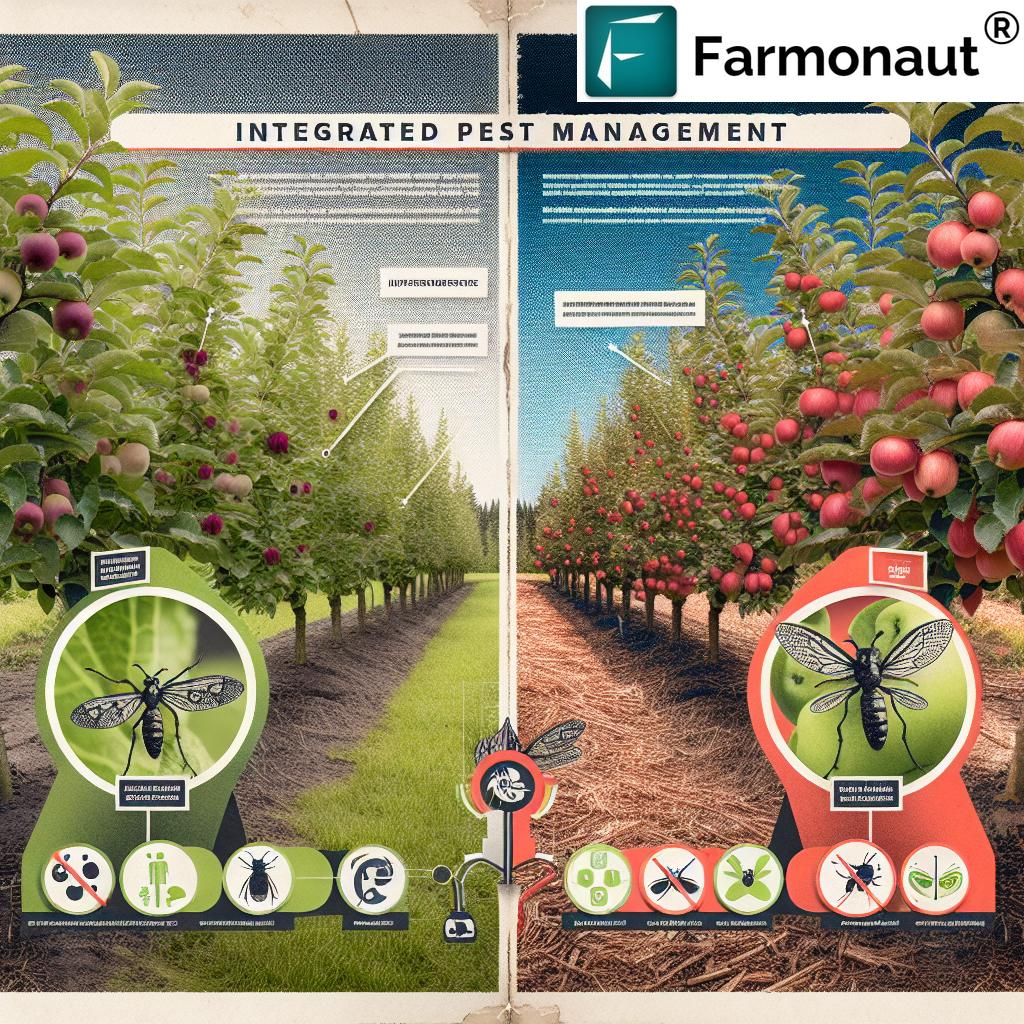Kansas-Canada Trade: Boosting Economic Growth and Job Creation Through International Partnerships
“Kansas exports to Canada exceed $2.6 billion annually, contributing significantly to the state’s economic growth.”
As we delve into the thriving Kansas-Canada trade relationship, it’s crucial to understand the pivotal role international trade plays in our state’s economic growth and job creation. From the heartland of America to the vast expanses of our northern neighbor, the bonds of commerce have woven a tapestry of mutual prosperity that continues to benefit both regions.
In this comprehensive exploration, we’ll uncover the dynamics of Kansas exports to Canada, examine the diverse sectors driving this economic powerhouse, and shed light on the far-reaching impacts of these international partnerships. Join us as we navigate through the intricacies of trade policies, market trends, and the innovative strategies Kansas businesses employ to leverage these cross-border collaborations.
The Backbone of Kansas-Canada Trade: A Snapshot
At the core of the Kansas-Canada trade relationship lies a robust exchange of goods and services that has stood the test of time. With Canada remaining the state’s top export market, the annual flow of over $2.6 billion in goods sent north of the border underscores the significance of this partnership.

But what exactly comprises this substantial trade volume? Let’s break it down:
- Agricultural Products: Kansas’s fertile plains contribute significantly to its agricultural exports.
- Machinery: High-quality equipment from Kansas finds eager buyers in Canadian industries.
- Aerospace: The state’s renowned aerospace sector plays a crucial role in exports.
- Automobiles: Vehicle components and finished products cross the border regularly.
This diverse export portfolio not only showcases Kansas’s economic strengths but also highlights the complementary nature of our trade with Canada. As Sylvain Fabi, Consulate General of Canada, aptly puts it, “It’s not just agricultural products, it’s also machinery, automobiles, aerospace, etc.”
The Economic Impact: Beyond the Numbers
While the $2.6 billion in annual exports is impressive, the true scale of Kansas-Canada trade extends far beyond this figure. In fact, the total trade relationship amounts to nearly $5 billion, encompassing both exports and imports. This substantial economic activity translates into tangible benefits for Kansans:
- Job Creation: International trade supports over 360,000 jobs across Kansas.
- Economic Stability: Diversified export markets help buffer against economic fluctuations.
- Innovation Stimulus: International competition drives continuous improvement and innovation in Kansas industries.
Juliet Abdel, President of Greater Topeka Partnership, emphasizes the significance: “When we’re looking at the scope of international trade across the state of Kansas, that’s over 360 thousand jobs alone.”
Agricultural Exports: Kansas’s Green Gold
Agriculture has long been the backbone of Kansas’s economy, and it continues to play a crucial role in our international trade. Kansas agricultural exports to Canada form a significant portion of our trade relationship, encompassing a wide range of products:
- Wheat and grain products
- Beef and pork
- Soybeans and other oilseeds
- Processed foods and beverages
The success of Kansas agricultural exports can be attributed to several factors:
- Quality and Consistency: Kansas farmers are known for producing high-quality crops and livestock.
- Advanced Farming Techniques: The adoption of precision agriculture and sustainable practices enhances productivity.
- Strong Supply Chains: Efficient transportation and logistics networks ensure timely delivery to Canadian markets.
In this context, it’s worth noting how technology is revolutionizing agriculture. Companies like Farmonaut are at the forefront of this transformation, offering satellite-based farm management solutions that help farmers optimize their operations. While Farmonaut itself is not directly involved in Kansas-Canada trade, its technology exemplifies the kind of innovation that keeps Kansas agriculture competitive in international markets.
Aerospace Industry: Soaring High in International Trade
The aerospace industry in Kansas has been a cornerstone of the state’s economy for decades, and it plays a significant role in our exports to Canada. Known as the “Air Capital of the World,” Wichita and the surrounding areas are home to major aircraft manufacturers and a vast network of suppliers.
Key components of Kansas’s aerospace exports include:
- Aircraft parts and components
- Avionics and electronic systems
- Maintenance, Repair, and Overhaul (MRO) services
- Specialized aerospace materials
The strength of Kansas’s aerospace exports lies in:
- Innovation: Continuous research and development keep Kansas at the cutting edge of aerospace technology.
- Skilled Workforce: A highly trained labor force ensures high-quality production.
- Industry Clusters: The concentration of aerospace companies in Kansas creates synergies and efficiencies.
“International trade with Canada supports over 360,000 jobs across Kansas, showcasing the importance of cross-border partnerships.”
Machinery and Manufacturing: Powering Progress
Kansas’s robust manufacturing sector, particularly in machinery production, contributes significantly to our export market. From agricultural equipment to industrial machinery, Kansas-made products are in high demand across the border. This sector benefits from:
- Advanced manufacturing techniques
- A strong tradition of engineering excellence
- Strategic location for distribution to Canadian markets
The machinery exports from Kansas to Canada include:
- Agricultural machinery and implements
- Construction equipment
- Industrial processing machinery
- Specialized manufacturing equipment

The Role of Trade Policies and Agreements
The Kansas-Canada trade relationship doesn’t exist in a vacuum. It’s shaped and influenced by various trade policies and agreements. The United States-Mexico-Canada Agreement (USMCA), which replaced NAFTA, plays a crucial role in facilitating trade between Kansas and Canada.
Key aspects of trade policy affecting Kansas exports include:
- Tariff structures and quotas
- Regulatory harmonization
- Intellectual property protections
- Labor and environmental standards
As discussions on trade policies continue, Kansas leaders emphasize the importance of maintaining open lines of commerce. The potential for new tariffs or policy changes can have significant impacts on our state’s economy, making it crucial for businesses and policymakers to stay informed and adaptable.
Strategies for Success in International Trade
Kansas businesses have developed various strategies to leverage international partnerships and ensure continued growth in the export market. Some key approaches include:
- Market Research: Understanding Canadian consumer preferences and market trends.
- Quality Assurance: Maintaining high standards to meet international regulations.
- Relationship Building: Fostering strong connections with Canadian partners and distributors.
- Innovation: Continuously improving products and processes to stay competitive.
- Digital Transformation: Embracing e-commerce and digital marketing to reach new customers.
In the agricultural sector, for instance, farmers are increasingly turning to technology to enhance their productivity and competitiveness. Platforms like Farmonaut offer tools for precision agriculture, helping farmers optimize their yields and resource use. While Farmonaut itself is not directly involved in exporting, its technology exemplifies the kind of innovation that can give Kansas farmers an edge in international markets.
The Future of Kansas-Canada Trade
As we look to the future, several trends and factors are likely to shape the Kansas-Canada trade relationship:
- Technological Advancements: Continued innovation in sectors like aerospace and agriculture will drive export growth.
- Sustainability Focus: Increasing demand for environmentally friendly products and practices.
- Digital Trade: Growing importance of e-commerce and digital services in international trade.
- Supply Chain Resilience: Efforts to strengthen and diversify supply chains in light of global disruptions.
Kansas businesses are well-positioned to capitalize on these trends, leveraging our state’s strengths in key industries and our culture of innovation.
Comparative Data: Kansas Exports to Canada by Industry Sector
| Industry Sector | Export Value (Estimated in $ Millions) | Jobs Supported (Estimated) |
|---|---|---|
| Agriculture | 850 | 120,000 |
| Aerospace | 700 | 90,000 |
| Machinery | 600 | 80,000 |
| Others (including Automobiles) | 450 | 70,000 |
| Total | 2,600 | 360,000 |
The Role of Innovation in Sustaining Trade Growth
Innovation plays a crucial role in maintaining and expanding Kansas’s strong position in international trade. Across various sectors, from agriculture to aerospace, Kansas businesses are embracing new technologies and approaches to stay competitive in the global market.
In agriculture, for instance, precision farming techniques are helping farmers optimize their yields and resource use. Companies like Farmonaut are at the forefront of this revolution, offering satellite-based farm management solutions that provide valuable insights for crop health monitoring and resource management. While Farmonaut itself is not directly involved in Kansas-Canada trade, its technology exemplifies the kind of innovation that can enhance the competitiveness of Kansas agricultural exports.
Challenges and Opportunities in Kansas-Canada Trade
While the Kansas-Canada trade relationship is strong, it’s not without its challenges. Some of the key issues include:
- Trade Policy Uncertainties: Changes in tariffs or regulations can impact trade flows.
- Currency Fluctuations: Exchange rate variations can affect the competitiveness of Kansas exports.
- Competition: Other states and countries vying for market share in Canada.
- Logistics and Transportation: Ensuring efficient and cost-effective delivery of goods across the border.
However, these challenges also present opportunities for innovation and growth. Kansas businesses are adapting by:
- Diversifying their product offerings to reduce reliance on any single market segment.
- Investing in advanced manufacturing and logistics technologies to improve efficiency.
- Developing stronger partnerships with Canadian distributors and customers.
- Exploring new market niches where Kansas products have a competitive advantage.
The Role of Government and Trade Organizations
Various government agencies and trade organizations play crucial roles in facilitating and promoting Kansas-Canada trade. These include:
- Kansas Department of Commerce
- U.S. Commercial Service
- Kansas Global Trade Services
- Local chambers of commerce
These organizations provide valuable services such as:
- Market research and trade data
- Export assistance and guidance
- Trade mission organization
- Networking opportunities with Canadian partners
As Juliet Abdel of the Greater Topeka Partnership notes, “We’ve collaborated with chambers across the borders, across lines that’s generally what our organizations are all about, is seeking those opportunities for collaborations, for greater partnerships, and for creating this environment where businesses can continue to thrive.”
The Impact of Digital Technology on Trade
Digital technology is reshaping the landscape of international trade, offering new opportunities for Kansas businesses to connect with Canadian customers and partners. Some key developments include:
- E-commerce Platforms: Enabling direct sales to Canadian consumers and businesses.
- Digital Marketing: Reaching new customers through targeted online campaigns.
- Virtual Trade Shows: Showcasing Kansas products to Canadian buyers without the need for travel.
- Blockchain for Supply Chain Management: Enhancing transparency and traceability in cross-border trade.
While not directly related to Kansas-Canada trade, companies like Farmonaut demonstrate how digital technology can transform traditional industries. Their satellite-based crop monitoring and AI-driven advisory systems show the potential for tech innovation to enhance productivity and competitiveness in sectors crucial to Kansas’s export economy.
Explore Farmonaut’s API for advanced agricultural insights
Access Farmonaut’s API Developer Docs
Environmental Considerations in International Trade
As environmental concerns become increasingly important globally, they’re also shaping the Kansas-Canada trade relationship. Both countries are focusing on sustainable practices and environmentally friendly products. This trend affects Kansas exports in several ways:
- Increased demand for organic and sustainably produced agricultural products
- Growing market for energy-efficient machinery and equipment
- Emphasis on reducing carbon footprints in manufacturing and transportation
- Development of new technologies for environmental monitoring and management
Kansas businesses are adapting to these trends by:
- Implementing sustainable farming practices
- Developing eco-friendly manufacturing processes
- Investing in green technologies
- Obtaining environmental certifications for their products
The Human Element: Building Strong Cross-Border Relationships
While much of our discussion has focused on economic data and trade policies, it’s important to remember that at its core, international trade is about relationships between people. The strong Kansas-Canada trade relationship is built on a foundation of mutual understanding, shared values, and personal connections.
Key aspects of these human relationships include:
- Cultural exchanges and educational partnerships
- Business networking events and trade missions
- Collaboration between research institutions
- People-to-people connections through tourism and family ties
These personal and professional relationships help to:
- Foster trust between Kansas and Canadian businesses
- Facilitate smoother business negotiations
- Encourage knowledge sharing and innovation
- Create a more resilient trade relationship that can weather economic challenges
Looking Ahead: The Future of Kansas-Canada Trade
As we look to the future, the Kansas-Canada trade relationship appears poised for continued growth and evolution. Several factors will likely shape this future:
- Technological Advancements: Continued innovation in key sectors like aerospace, agriculture, and manufacturing will drive new export opportunities.
- Shift Towards Sustainability: Growing emphasis on environmentally friendly products and practices will create new market niches.
- Digital Transformation: Increased adoption of e-commerce and digital services will reshape how trade is conducted.
- Geopolitical Factors: Changes in global trade dynamics may affect the Kansas-Canada relationship.
To capitalize on these trends and maintain our strong trade relationship with Canada, Kansas businesses and policymakers should focus on:
- Investing in research and development to stay at the forefront of innovation
- Developing a skilled workforce capable of competing in the global economy
- Strengthening cross-border partnerships and collaborations
- Advocating for trade policies that benefit Kansas industries
- Embracing digital technologies to streamline trade processes and reach new markets
Conclusion: The Enduring Strength of Kansas-Canada Trade
As we’ve explored throughout this article, the Kansas-Canada trade relationship is a cornerstone of our state’s economic prosperity. From the fertile fields of our agricultural heartland to the high-tech corridors of our aerospace industry, Kansas products find eager markets across our northern border. This trade not only drives economic growth but also supports hundreds of thousands of jobs across our state.
The success of this relationship is built on a foundation of mutual benefit, shared values, and a commitment to innovation. As we face the challenges and opportunities of the future, from shifting trade policies to technological revolutions, the resilience and adaptability of Kansas businesses will continue to drive our success in the Canadian market.
By leveraging our strengths, embracing innovation, and fostering strong international partnerships, Kansas is well-positioned to maintain and grow its vital trade relationship with Canada. As we move forward, this partnership will undoubtedly continue to be a key driver of economic growth and job creation for our state.
FAQ Section
Q: What is the total value of Kansas exports to Canada?
A: Kansas exports to Canada exceed $2.6 billion annually.
Q: How many jobs in Kansas are supported by international trade with Canada?
A: International trade with Canada supports over 360,000 jobs across Kansas.
Q: What are the main sectors contributing to Kansas-Canada trade?
A: The main sectors include agriculture, aerospace, machinery, and automobiles.
Q: How does the USMCA affect Kansas-Canada trade?
A: The USMCA, which replaced NAFTA, plays a crucial role in facilitating trade between Kansas and Canada by setting rules for tariffs, regulatory harmonization, and other trade aspects.
Q: What strategies are Kansas businesses using to succeed in the Canadian market?
A: Kansas businesses are focusing on market research, quality assurance, relationship building, innovation, and digital transformation to succeed in the Canadian market.
Q: How is technology impacting Kansas-Canada trade?
A: Technology is reshaping trade through e-commerce platforms, digital marketing, virtual trade shows, and advanced technologies in sectors like agriculture and manufacturing.
Q: What role do government and trade organizations play in Kansas-Canada trade?
A: Organizations like the Kansas Department of Commerce and Kansas Global Trade Services provide market research, export assistance, and networking opportunities to facilitate trade.
Q: How are environmental considerations affecting Kansas-Canada trade?
A: There’s an increasing focus on sustainable practices and environmentally friendly products, affecting demand for organic agricultural products, energy-efficient machinery, and green technologies.
Q: What are the main challenges in Kansas-Canada trade?
A: Key challenges include trade policy uncertainties, currency fluctuations, competition from other markets, and logistics and transportation issues.
Q: What does the future look like for Kansas-Canada trade?
A: The future looks promising, with opportunities in technological advancements, sustainability-focused products, digital trade, and strengthened cross-border partnerships.















